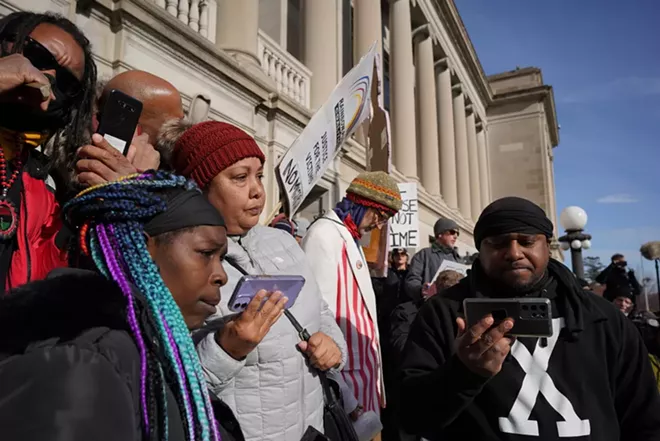
By Julie Bosman
The New York Times
KENOSHA, Wis. — Kyle Rittenhouse, who fatally shot two men and wounded another amid protests and rioting over police conduct in Kenosha, Wisconsin, was found not guilty of homicide and other charges Friday, in a deeply divisive case that ignited a national debate over vigilantism, gun rights and the definition of self-defense.
After about 26 hours of deliberation, a jury appeared to accept Rittenhouse’s explanation that he had acted reasonably to defend himself in an unruly and turbulent scene in August 2020, days after a white police officer shot Jacob Blake, a Black resident, during a summer of unrest following the murder of George Floyd by a Minneapolis police officer.
Rittenhouse, 18, sobbed and was held by his lawyers after the jury finished reading their verdict.
As the verdict was read, Rittenhouse’s mother and sisters cried, and friends and family of the men Rittenhouse shot clutched each other. Outside, quiet gave way to shouts from supporters of Rittenhouse. Gov. Tony Evers had prepared for any unrest after the verdict by authorizing 500 Wisconsin Army National Guard troops.
On Aug. 25, 2020, Rittenhouse arrived in downtown Kenosha with his rifle and a medical kit on the third day of civil unrest over the shooting of Blake by Officer Rusten Sheskey in the former factory town of 100,000 residents.
Testimony and video footage shown during the two-week trial revealed that Rittenhouse was chased into a parking lot, at one point, by Joseph Rosenbaum, 36, who was unarmed and behaving erratically. Rittenhouse turned and shot him at close range, killing Rosenbaum, who had been living in Kenosha.
Rittenhouse then shot two other people — Anthony Huber and Gaige Grosskreutz — who pursued Rittenhouse as he fled, testimony showed. Grosskreutz, a medic from the Milwaukee suburbs, survived and testified at the trial, saying that he had pulled out a gun because he believed that Rittenhouse was an active shooter. Huber, who was 26 and had been protesting the shooting of Blake — a longtime friend — died after a gunshot to the chest.
The prosecution struggled to undermine Rittenhouse’s central defense: that he had feared for his life when he was chased by Rosenbaum, a man who had been captured on video throughout the evening shouting threats and racial epithets and — according to Rittenhouse and a witness called by the prosecution — had promised to kill Rittenhouse if he found him alone.
This article originally appeared in The New York Times.














